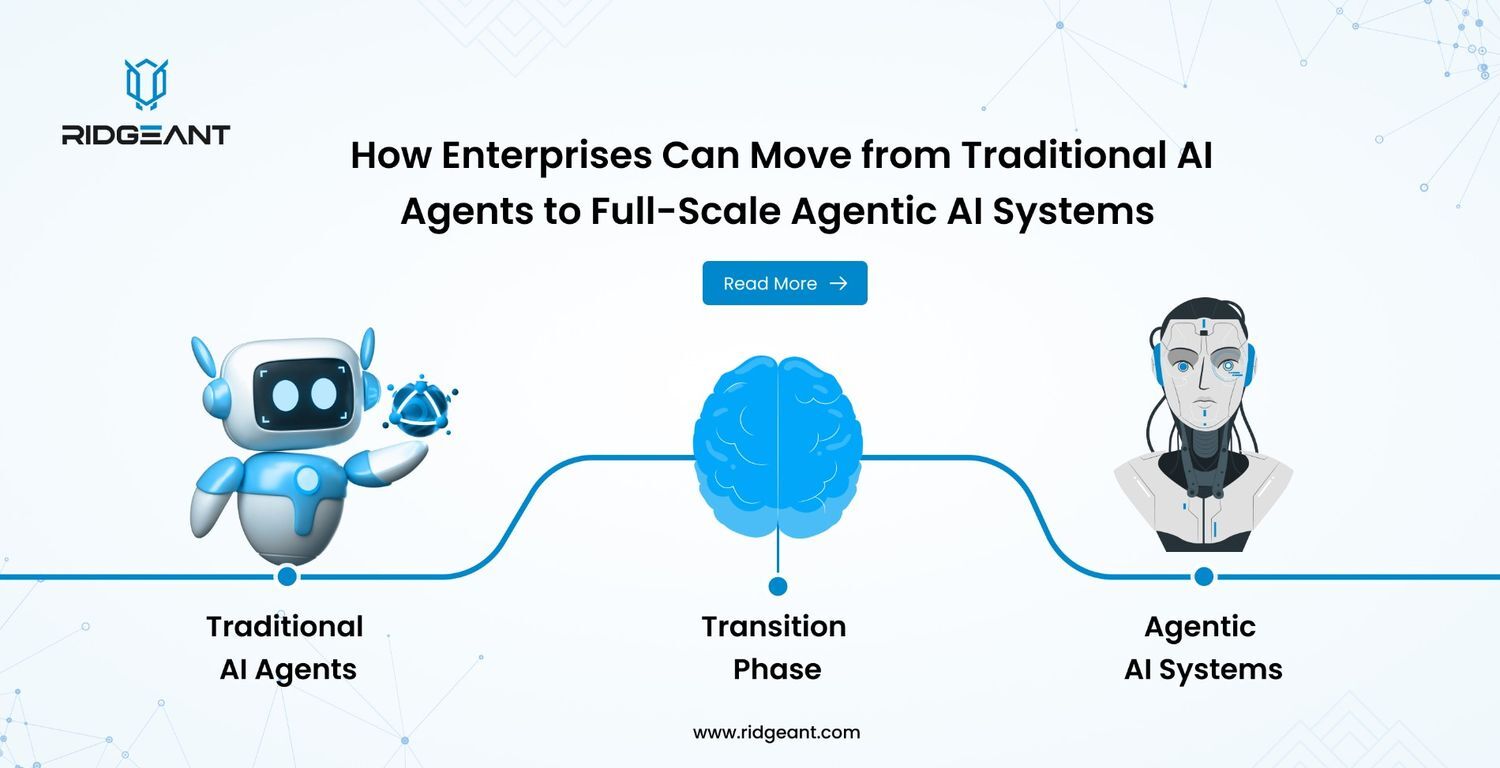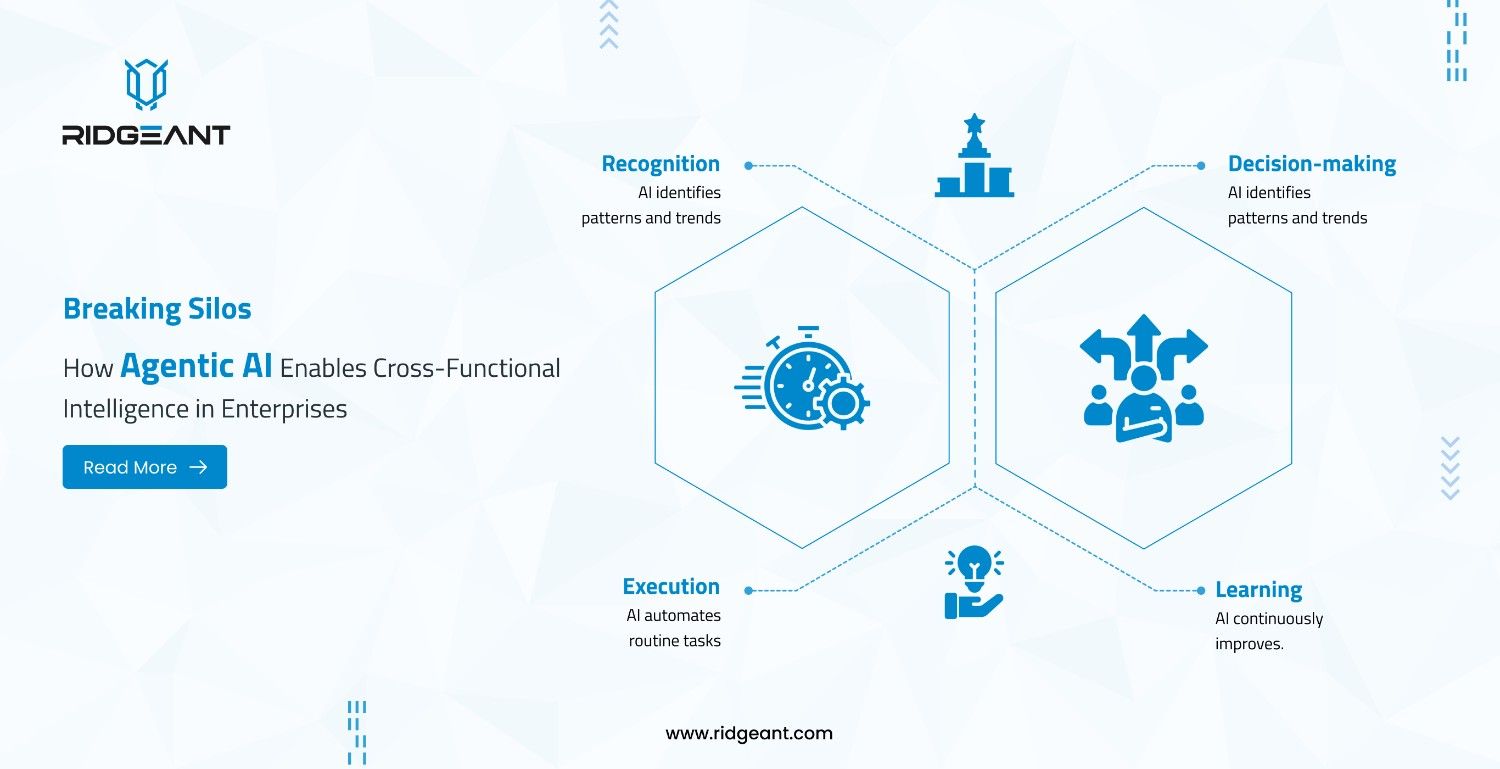
AI for Hospitality: 5 Ways to Transform Guest Experiences and Increase Profits
- Data Science, Artificial Intelligence, Machine Learning
- July 16, 2024
- Ridgeant

Remember the frustration of battling an impersonal hotel experience? Generic room settings, long waits at reception, and a nagging feeling that your preferences haven’t been considered. Thankfully, 2024 brings a wave of change driven by a powerful force: Artificial Intelligence (AI).
The hospitality industry is undergoing a revolution. Studies show a dramatic shift: a staggering 83% of hoteliers believe AI will significantly impact guest experiences by 2023 (Hospitality Net). But with 2024 upon us, the reality is even more compelling. Today’s guest expects a frictionless and personalized journey throughout their stay – from booking to checkout. AI offers a powerful toolkit to not only meet these expectations but exceed them. Let’s delve deeper and explore.
5 Key Ways AI is Transforming The Hospitality Industry:
- Personalized Experiences: A Journey Curated Just for You
Gone are the days of one-size-fits-all hospitality. AI empowers hotels to leverage guest data (booking preferences, past stays, reviews) to create a truly personalized experience. Here’s how, backed by impressive statistics:
- Smart Recommendations: For example, arriving at a hotel that suggests activities and restaurants you’ll genuinely enjoy, based on your past preferences. An AI-powered recommendation engine can analyze guest data to curate experiences that perfectly align with their interests. This goes beyond simple suggestions, offering a sense of anticipation and catering to individual tastes. Guests who receive personalized offers and recommendations are 2.5 times more likely to become loyal customers (Oracle).
- Dynamic Room Configuration: Leveraging guest data, AI can pre-configure room settings like lighting and temperature to match individual preferences. For example, a business traveler might prefer a brightly lit workspace for late-night emails, while a family with young children might prioritize a cooler room for comfortable sleep. This eliminates the need for guests to adjust settings upon arrival, creating a welcoming and comfortable environment from the outset.
- Streamlined Operations: Efficiency Gains that Benefit Guests (AI for Cost Savings and Revenue Growth)
AI isn’t just about personalization; it’s about optimizing hotel operations for greater efficiency, ultimately leading to improved guest satisfaction:
- Predictive Maintenance: Imagine a scenario where AI predicts equipment failures before they occur. This proactive approach ensures preventative maintenance, minimizes disruptions for guests, and guarantees a smooth and comfortable stay. Guests don’t have to worry about unexpected breakdowns or equipment malfunctions. AI can help hotels predict maintenance issues up to 30 days in advance, reducing downtime and costs.
- Automating Mundane Tasks: AI can automate repetitive tasks that often burden hotel staff, such as scheduling cleaning services, managing inventory levels, and generating reports. This frees up valuable staff time to focus on guest interaction and provide personalized service. Guests benefit from more attentive staff interactions, creating a more positive and memorable experience.
- Dynamic Pricing: AI can analyze market trends, competitor pricing, and historical data to set optimal room rates in real-time. This ensures hotels maximize revenue while offering guests competitive pricing. Guests get access to the best possible rates without compromising hotel profitability. AI can help hotels reduce operating costs by 15% and increase revenue by 5% (CMS Wire).
- Smart Rooms: A Glimpse into the Future of Guest Comfort and Control
Imagine a hotel room that anticipates your needs. AI-powered smart rooms are becoming a reality, offering guests a futuristic and convenient experience:
- Voice-Controlled Amenities: Guests can control lighting, temperature, entertainment systems, and even window blinds with simple voice commands. This empowers guests to customize their environment effortlessly, particularly for tech-savvy guests who appreciate a touch of modernity.
- Personalized Environment: Smart rooms can adjust lighting and temperature based on guest preferences stored in their profiles. Additionally, AI can learn guest habits and automate settings over time. For example, the room might automatically adjust to a preferred sleep temperature when a guest enters for the night. This creates a truly personalized haven of comfort for guests.
- Real-Time Information at Your Fingertips: Smart displays in rooms can showcase real-time information on hotel amenities, local attractions, weather forecasts, and even restaurant menus. This eliminates the need for physical brochures or calls to reception, providing guests with instant access to the information they need.
- Accessibility and Inclusivity: Catering to Every Guest
The hospitality industry strives to be inclusive for all guests, regardless of ability or background. AI plays a crucial role in achieving this goal:
- Real-Time Translation: Breaking Down Language Barriers for Seamless Communication: Imagine a scenario where AI-powered chatbots translate conversations. This eliminates language barriers and caters to a global clientele. Guests can communicate effectively with staff regardless of their native tongue, ensuring a smooth and frustration-free experience. Over 80% of guests say they are more likely to return to a hotel that provides personalized recommendations (Oracle). Imagine that same level of personalization applied to communication – a concept AI-powered chatbots can deliver.
- Voice-Activated Assistance: Empowering Guests with Visual Impairments: For guests with visual impairments, voice-activated assistants can become invaluable tools. Guests can control room amenities like lighting, temperature, and entertainment systems with simple voice commands. They can also access information on hotel services, amenities, and local attractions, all through voice interaction. This empowers guests with visual impairments to navigate their environment independently and enjoy a comfortable stay.
- Accessibility Features: Technology that Bridges the Gap: AI can be used to develop innovative accessibility features that enhance the guest experience for those with physical limitations. For example, AI can be integrated with automated door opening systems or voice-controlled light switches, removing physical barriers and promoting greater independence for guests.
- Data-Driven Decision Making: Empowering Hoteliers for Success
AI goes beyond guest experience; it empowers hoteliers with valuable data insights to optimize operations and ultimately, business success:
- Guest Sentiment Analysis: Understanding What Guests Really Think: AI can analyze guest reviews, social media mentions, and survey responses to understand guest sentiment. This allows hotels to identify areas for improvement, address guest concerns proactively, and continuously refine their offerings to meet guest expectations. Data shows that 2 out of 3 guests are more likely to return if the hotel addresses their negative reviews (TrustYou). By leveraging AI for sentiment analysis, hoteliers can gain valuable insights and act on guest feedback to improve guest satisfaction and loyalty.
- Targeted Marketing: Reaching the Right Guests with the Right Message: AI can analyze guest data to develop highly targeted marketing campaigns. Hotels can leverage guest preferences and past behavior to create personalized promotions or packages that resonate with specific guest segments. This ensures marketing efforts are efficient and generate a higher return on investment.
- Forecasting Demand: Predicting the Future for Optimal Planning: AI can analyze historical data and market trends to forecast future demand for hotel rooms. This allows hotels to optimize staffing levels, inventory management, and pricing strategies based on predicted occupancy rates. AI-powered concierge services can reduce calls to the human concierge desk by 35% or more, freeing up staff for other tasks (Oracle). This highlights how AI can not only optimize guest experience but also improve staff efficiency through better planning and resource allocation.
Case-Studies to explore the potential of Data and AI in Hospitality industry.
- Automated Housekeeping Auditing Of Properties In Hospitality
- Transforming Spaces with Innovative Interior Design Visualization App
- Abstract-based Sentiment Analysis System for the Hospitality Industry
The Future of AI in Hospitality: A Landscape of Continuous Innovation
The integration of AI in hospitality is still in its early stages, but the potential benefits are vast and undeniable. As AI technology continues to evolve and become more sophisticated, we can expect even more innovative applications that personalize the guest experience, streamline operations, and boost guest satisfaction. Hotels that embrace AI and leverage its capabilities will be well-positioned to thrive in the competitive hospitality landscape of the future.
Looking for an AI Partner to Transform Your Hospitality Business?
At Ridgeant, we are a leading provider of data science and AI solutions specifically designed for the hospitality industry. We can help you leverage AI to:
- Personalize guest experiences throughout the entire journey.
- Optimize hotel operations for greater efficiency and cost savings.
- Gain valuable data insights to make informed business decisions.
- Increase guest satisfaction and loyalty.
Contact us today to learn more about how AI can transform your hospitality business and help you towards success.














